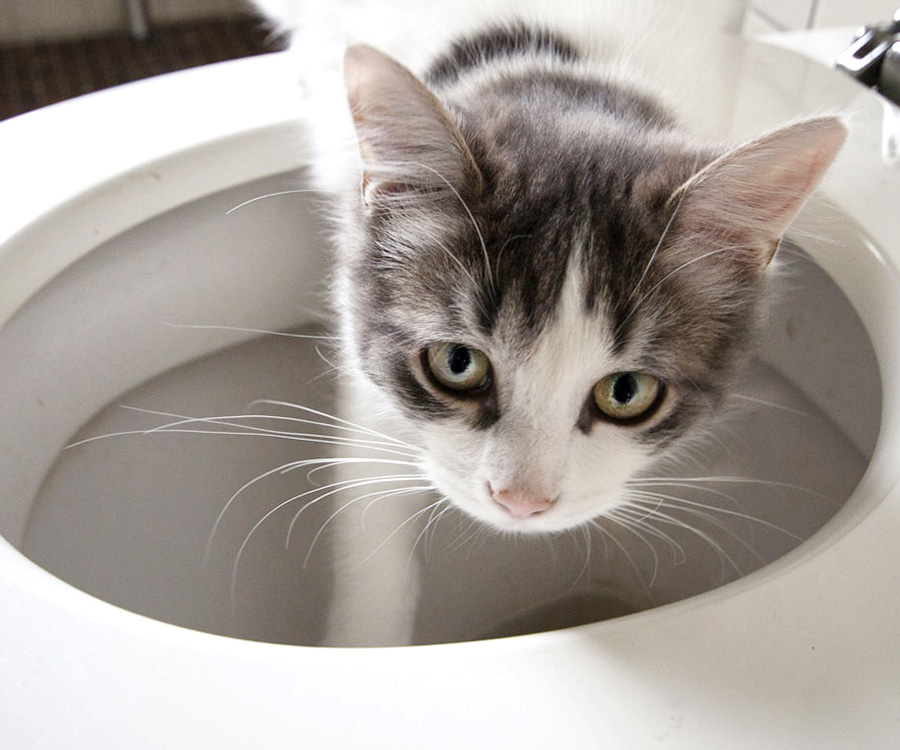Why You Shouldn't Flush Cat Poop Down Your Toilet - Preserve Your Plumbing Health
BookThe article author is making several great points related to Can You Flush Cat Poop Down The Toilet? overall in the article directly below.

Intro
As feline owners, it's vital to bear in mind how we throw away our feline pals' waste. While it may appear practical to purge feline poop down the commode, this practice can have destructive repercussions for both the environment and human health and wellness.
Environmental Impact
Flushing feline poop introduces harmful virus and parasites right into the water system, posing a considerable threat to aquatic ecosystems. These pollutants can adversely affect aquatic life and concession water quality.
Wellness Risks
In addition to ecological worries, flushing feline waste can additionally present health dangers to human beings. Feline feces might include Toxoplasma gondii, a bloodsucker that can create toxoplasmosis-- a potentially serious illness, especially for expectant females and individuals with weakened body immune systems.
Alternatives to Flushing
Fortunately, there are safer and a lot more liable means to deal with feline poop. Think about the complying with options:
1. Scoop and Dispose in Trash
One of the most typical technique of taking care of pet cat poop is to scoop it right into an eco-friendly bag and toss it in the garbage. Make certain to utilize a dedicated trash scoop and throw away the waste quickly.
2. Usage Biodegradable Litter
Opt for naturally degradable feline litter made from products such as corn or wheat. These clutters are environmentally friendly and can be securely disposed of in the garbage.
3. Hide in the Yard
If you have a yard, consider burying pet cat waste in a marked location far from veggie gardens and water resources. Make sure to dig deep adequate to stop contamination of groundwater.
4. Install a Pet Waste Disposal System
Purchase a family pet garbage disposal system specifically designed for cat waste. These systems utilize enzymes to break down the waste, decreasing odor and environmental effect.
Final thought
Accountable animal ownership extends past giving food and sanctuary-- it additionally includes appropriate waste management. By refraining from purging feline poop down the bathroom and going with different disposal techniques, we can reduce our ecological impact and safeguard human health.
Why Can’t I Flush Cat Poop?
It Spreads a Parasite
Cats are frequently infected with a parasite called toxoplasma gondii. The parasite causes an infection called toxoplasmosis. It is usually harmless to cats. The parasite only uses cat poop as a host for its eggs. Otherwise, the cat’s immune system usually keeps the infection at low enough levels to maintain its own health. But it does not stop the develop of eggs. These eggs are tiny and surprisingly tough. They may survive for a year before they begin to grow. But that’s the problem.
Our wastewater system is not designed to deal with toxoplasmosis eggs. Instead, most eggs will flush from your toilet into sewers and wastewater management plants. After the sewage is treated for many other harmful things in it, it is typically released into local rivers, lakes, or oceans. Here, the toxoplasmosis eggs can find new hosts, including starfish, crabs, otters, and many other wildlife. For many, this is a significant risk to their health. Toxoplasmosis can also end up infecting water sources that are important for agriculture, which means our deer, pigs, and sheep can get infected too.
Is There Risk to Humans?
There can be a risk to human life from flushing cat poop down the toilet. If you do so, the parasites from your cat’s poop can end up in shellfish, game animals, or livestock. If this meat is then served raw or undercooked, the people who eat it can get sick.
In fact, according to the CDC, 40 million people in the United States are infected with toxoplasma gondii. They get it from exposure to infected seafood, or from some kind of cat poop contamination, like drinking from a stream that is contaminated or touching anything that has come into contact with cat poop. That includes just cleaning a cat litter box.
Most people who get infected with these parasites will not develop any symptoms. However, for pregnant women or for those with compromised immune systems, the parasite can cause severe health problems.
How to Handle Cat Poop
The best way to handle cat poop is actually to clean the box more often. The eggs that the parasite sheds will not become active until one to five days after the cat poops. That means that if you clean daily, you’re much less likely to come into direct contact with infectious eggs.
That said, always dispose of cat poop in the garbage and not down the toilet. Wash your hands before and after you clean the litter box, and bring the bag of poop right outside to your garbage bins.
https://trenchlesssolutionsusa.com/why-cant-i-flush-cat-poop/

I am just very involved in Can You Flush Cat Poop Down The Toilet? and I'm hoping you appreciated our blog post. So long as you appreciated our post plz be sure to share it. Thank-you for your time spent reading it.
Call Today